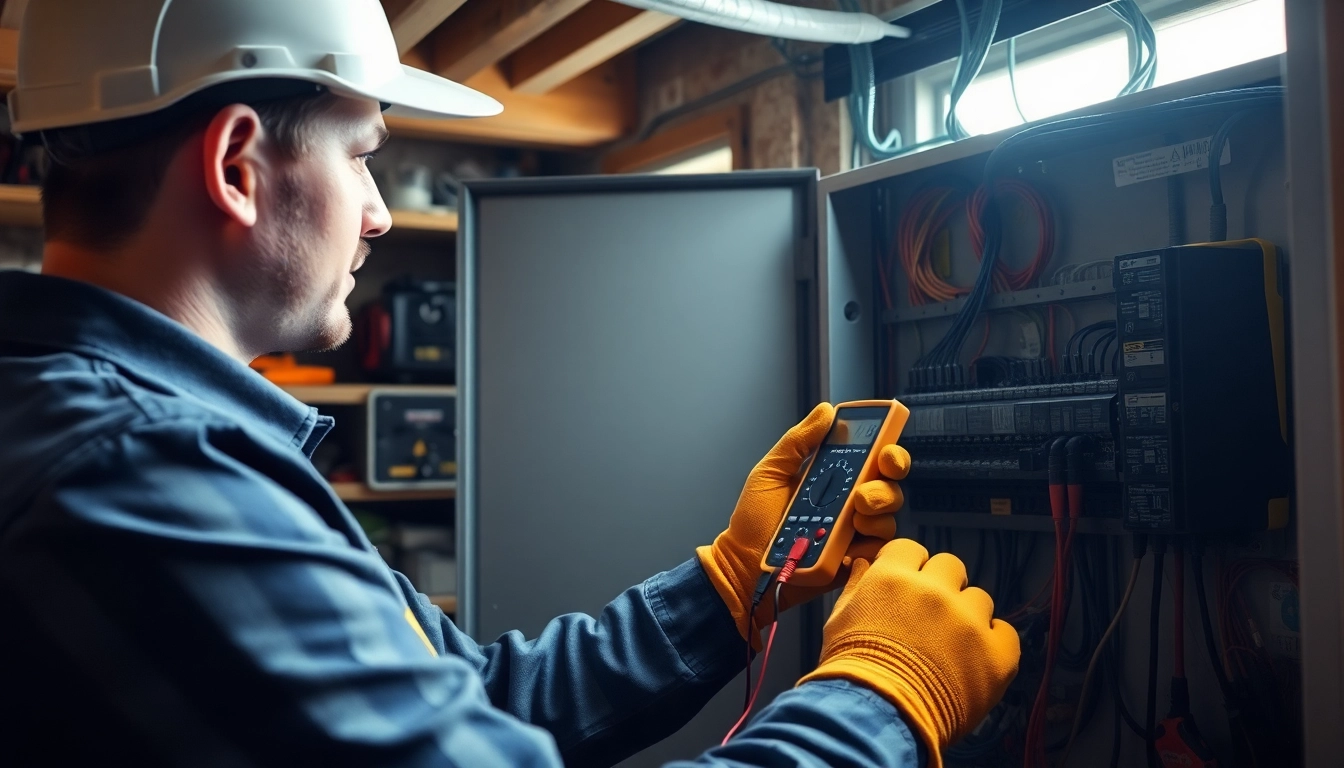Understanding the Role of an Electrical Panel
An electrical panel, also known as a breaker panel, is the central hub of your home’s electrical system. It is critical for distributing electricity throughout your home and ensuring that your electrical system operates safely and efficiently. Understanding its role and the signs that it may need an upgrade is essential for any homeowner.
What is an Electrical Panel?
An electrical panel serves as the main point of distribution for electrical power in your home. It is where the main power supply enters from the utility company. The panel is comprised of various circuit breakers or fuses that manage and redirect electrical flow to the various circuits in your home. Traditionally, these panels were equipped with fuses, but modern homes predominantly use circuit breakers for safety and efficiency.
How Electrical Panels Function in Your Home
The primary function of an electrical panel is to control the distribution of electricity throughout your home. Power from the utility source feeds into the panel, where it is distributed to multiple circuits. Each circuit feeds electrical outlets, appliances, and fixtures. Circuit breakers inside the panel automatically interrupt (or “trip”) the electric flow if they detect an overload or short circuit, thereby protecting the wiring and reducing the risk of fire or damage.
Common Components of an Electrical Panel
Several components work in concert within an electrical panel:
- Main Breaker: This is the primary switch that shuts off electricity to the entire panel. It serves as the main control point for the electrical system.
- Circuit Breakers: Each circuit breaker controls the flow of electricity to specific areas of your home, such as rooms or appliances. They can be reset after tripping.
- Bus Bars: These metal strips distribute electricity from the main breaker to the individual circuit breakers.
- Grounding System: A grounding system prevents the buildup of voltage and redirects excess electricity safely into the ground.
- Panel Enclosure: The outer casing protects the inner components from debris and accidental contact.
Signs You Need to Upgrade Your Electrical Panel
Upgrading your electrical panel is essential if you notice any of the following warning signs:
Frequent Circuit Breaker Trippings
If your circuit breakers are tripping frequently, this indicates that they are drawing more current than they are designed to handle. Continuous tripping can lead to system failures and may signify that your electrical panel is overloaded or insufficient for your power needs.
Increased Electrical Demands
As technology advances, the number of electronics in our homes continues to grow. If you’ve recently added new appliances or systems (like home automation or electric vehicle chargers), your existing electrical panel may not be equipped to handle the increase in electrical demand. An upgrade may be necessary to safely accommodate these new loads.
Physical Damage or Wear on the Panel
Inspect your electrical panel regularly for signs of physical wear, such as rust, scorch marks, or burning odors. These symptoms indicate potential safety hazards and may necessitate an immediate upgrade or replacement of outdated hardware.
Benefits of Upgrading Your Electrical Panel
Upgrading your electrical panel can offer several benefits:
Improved Safety and Reduced Fire Risks
A modern electrical panel enhances safety features, reducing the likelihood of electrical fires caused by overheating or short circuits. Newer models come equipped with Ground Fault Circuit Interrupters (GFCIs) and Arc Fault Circuit Interrupters (AFCIs), providing an additional layer of protection.
Better Energy Efficiency and Cost Savings
Newer electrical panels have improved energy management features, which may contribute to lower energy bills. They allow homeowners to better monitor and control energy usage across various circuits, leading to potential savings over time.
Increased Home Value and Marketability
Upgrading an outdated electrical panel can enhance the value of your home. Homebuyers are often concerned about electrical safety, and a new panel could make your property more attractive on the market, potentially fetching a higher sale price.
How to Choose the Right Electrical Panel for Your Home
When looking to upgrade your electrical panel, consider the following:
Understanding Panel Types and Their Capacities
Electrical panels come in various types and capacities. The most common residential panels range from 100 to 200 amps. Understanding your usage needs can help you select an appropriate panel. A 100-amp service is typically sufficient for older homes, while modern homes or those with significant appliance use may need a 200-amp service.
Factors to Consider When Selecting a New Panel
Several factors should influence your decision when selecting a new electrical panel:
- Current and Future Needs: Consider your current electrical load requirements and plan for potential future upgrades.
- Compatibility: Ensure that the new panel is compatible with your existing wiring and meter setup.
- Safety Ratings: Look for panels that have high safety ratings and are compliant with local building codes.
The Importance of Hiring a Qualified Electrician
Upgrading an electrical panel is a task best left to licensed electricians. The installation process requires specialized knowledge and understanding of local codes. A qualified electrician will assess your specific needs and ensure that your new panel operates safely and effectively.
Cost Considerations for Electrical Panel Upgrades
The costs associated with upgrading your electrical panel can vary significantly based on several factors:
Average Costs and What Influences Pricing
On average, electrical panel upgrade costs range from $1,000 to $3,000. Factors influencing the price include:
- Panel Type and Size: Higher capacity panels generally cost more.
- Labor Costs: Prices may vary based on your location and the electrician’s rates.
- Permits and Inspections: Local regulations may require permits and inspections, adding to the overall cost.
Budgeting for Electrical Panel Replacement
When budgeting for your electrical panel upgrade, consider the total scope of the project, including materials and labor. Setting aside additional funds for unexpected expenses is wise, as unforeseen issues may arise during installation.
Potential Savings Over Time with Efficient Panels
Investing in a modern electrical panel can lead to savings on your utility bills over time. More efficient panels can help you manage energy consumption effectively, while safety upgrades may reduce the risk of costly damages associated with electrical fires or system failures.



